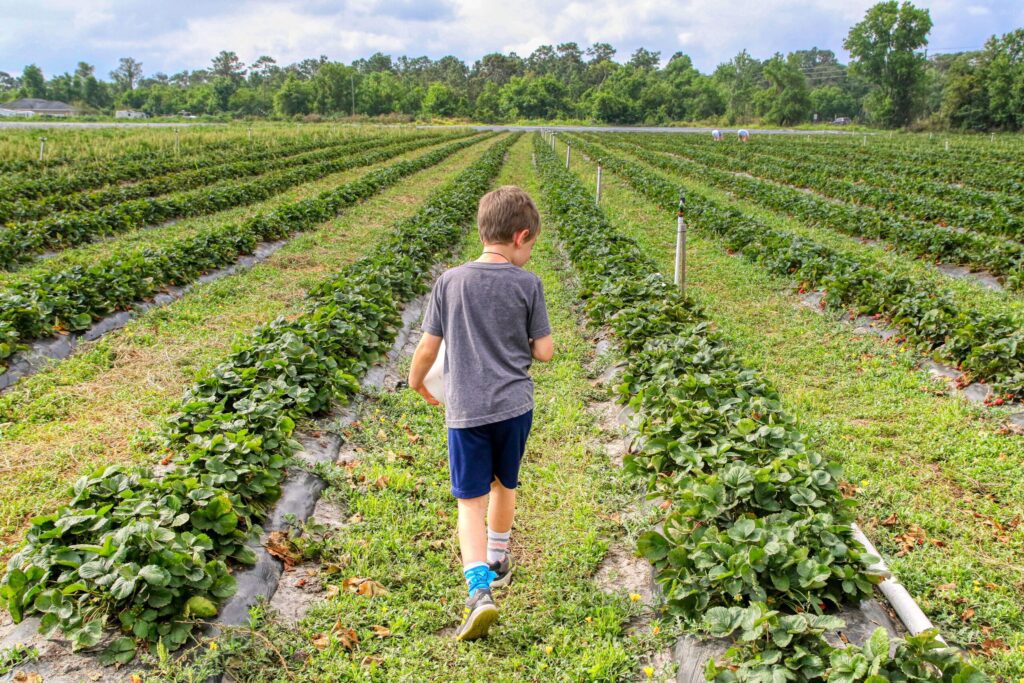Scarlett Jackson Working on Establishing Ag Education Standards
by PAMELA PALONGUE
Where do the farmers of tomorrow learn the skills needed for contemporary agriculture, which may involve business management skills and even the analysis of complex data to ensure the most productive crop? It starts with awareness of farming as a highly skilled profession in the primary grades and continues with agriculture classes in grades 6 through 12.
Scarlett Jackson, Director of Admissions at Warner University in Polk County and a Polk County Farm Bureau board member, has seen the difference a good ag education in middle and high school can make when a student enters the university to major in ag professions.
“They have firsthand experiences,” she says, “They’ve learned leadership skills, and they’re way ahead.”
Jackson, who taught ag education in middle and high school for several years, has seen remarkable differences in ag curriculums from school to school. It’s something she hopes to change.
“The Farm Bureau has advisory programs that ensure standards for growing citrus, or beef, so why not an advisory committee to ensure that the foundational goals of ag education are being met in our schools?”
Jackson has been working with ag industry professionals in gathering information to determine what the current standards are for curriculum for ag education in Polk County. Although this is a local project at this point, guidelines could potentially be rolled out statewide in Florida. This involves coordinating between ag educators, industry employers, and the Florida Department of Education on Agriculture Foundations. They hope that after consulting with industry employers, a sort of handbook for teachers can be established to help support them.
At this point, the demand for ag teachers is greatly outpacing the amount of teachers in this field. As an admissions director, Jackson has witnessed this at several universities.
“We don’t have enough graduates coming out of any institution to fill ag teacher roles in schools. The farming industry needs to support ag education, to get more teachers into the field of agriculture education. It’s a tough job because ag teachers have to maintain a land lab that needs overseeing, they may also keep cattle or sheep that are used for teaching the students, or they may also have an aquaponics system that needs to be maintained. They typically work 10-hour days that involve more than just classroom teaching.”
A teaching resource that has been developed by the Florida Department of Agriculture Education in collaboration with farming industry experts and educators could go a long way toward helping teachers to stay on top of modern techniques and advancements in farming. This would provide real, practical learning material for the course curriculum which would be especially helpful for new ag teachers who’ve just graduated. As Jackson puts it, “This would bridge the gap between the industry and the teacher.”
“The students today are missing the technical aspects of how we grow our food, because they’re sometimes three or four generations detached from their grandparents who were farmers. They have no concept of where food comes from. We are meeting them where they are and then supporting them if they want to continue to learn more about agriculture.”
Besides being a former ag teacher, Jackson is the daughter of a cattle rancher. She’s seen that students choosing to take ag classes have a real passion for what they’re learning.
Jackson urges anyone who would like to get involved in helping future generations of ag producers get a better, more well-rounded ag education to consider joining the Polk County Farm Bureau.
“In addition to member benefits, it gives those in the ag industry a voice. The Farm Bureau is an advocate for our industry.”
If you would like to volunteer to help in the formation of an ag education advisory committee or have suggestions regarding curriculum, you can reach Jackson at scarlett.jackson@warner.edu

